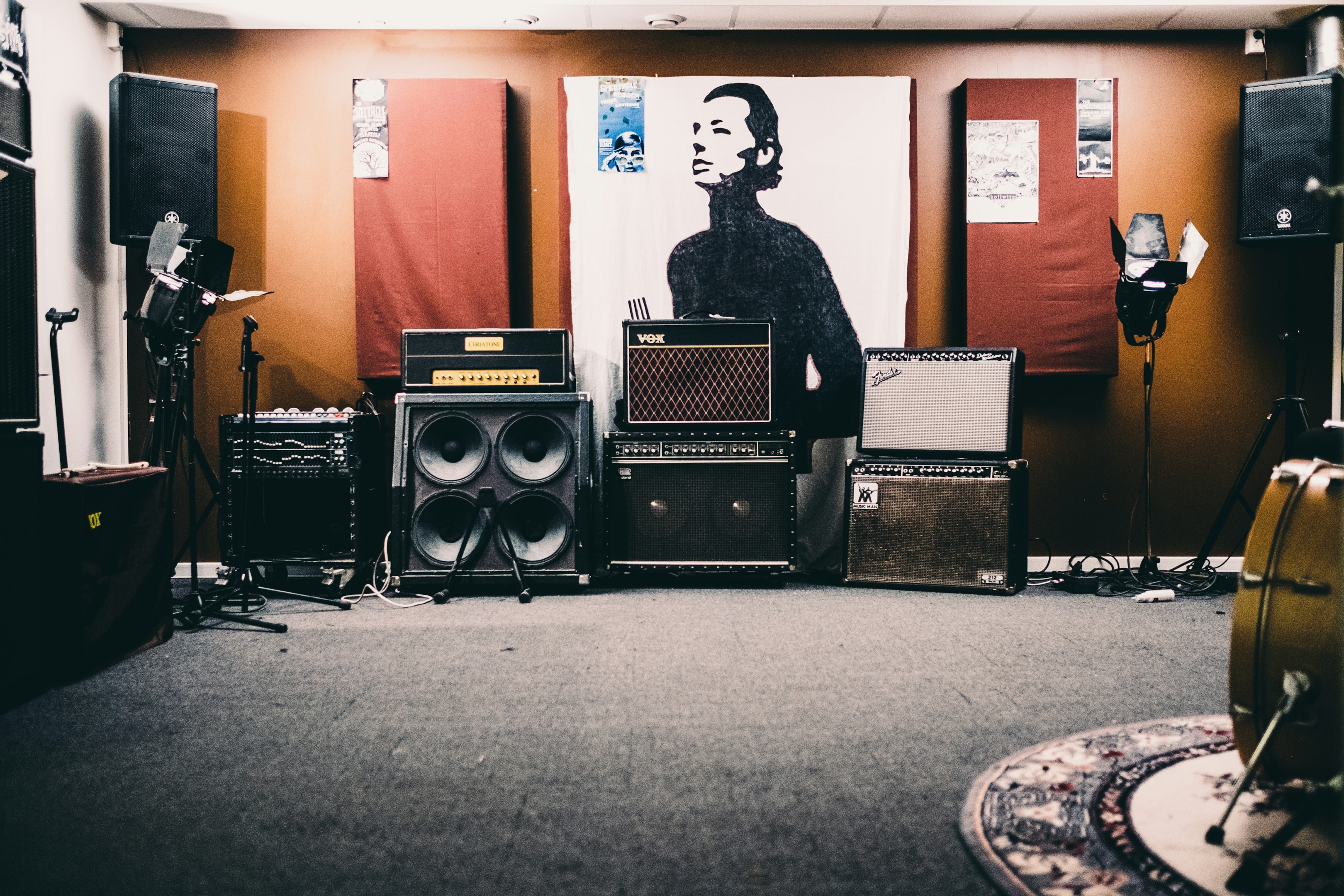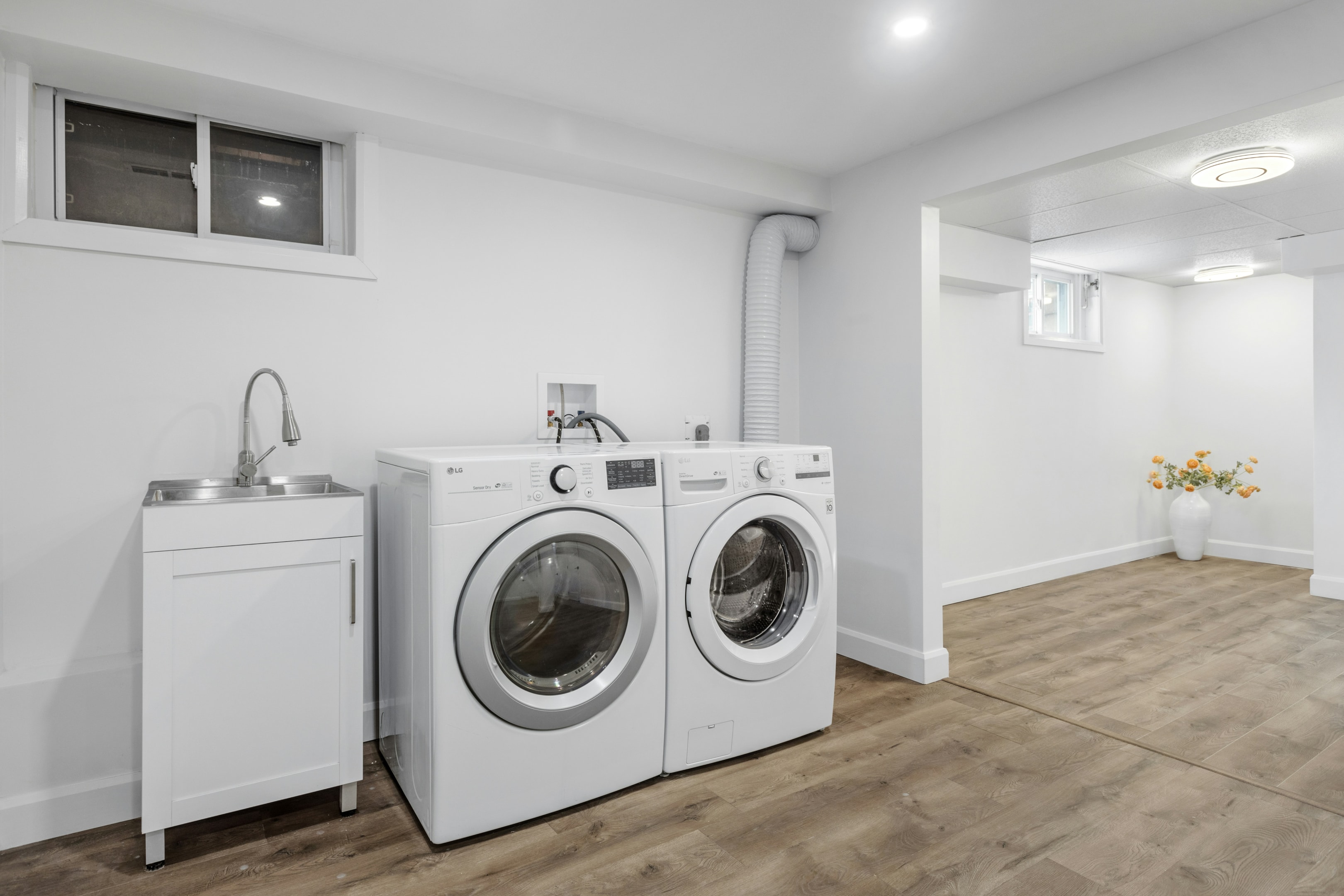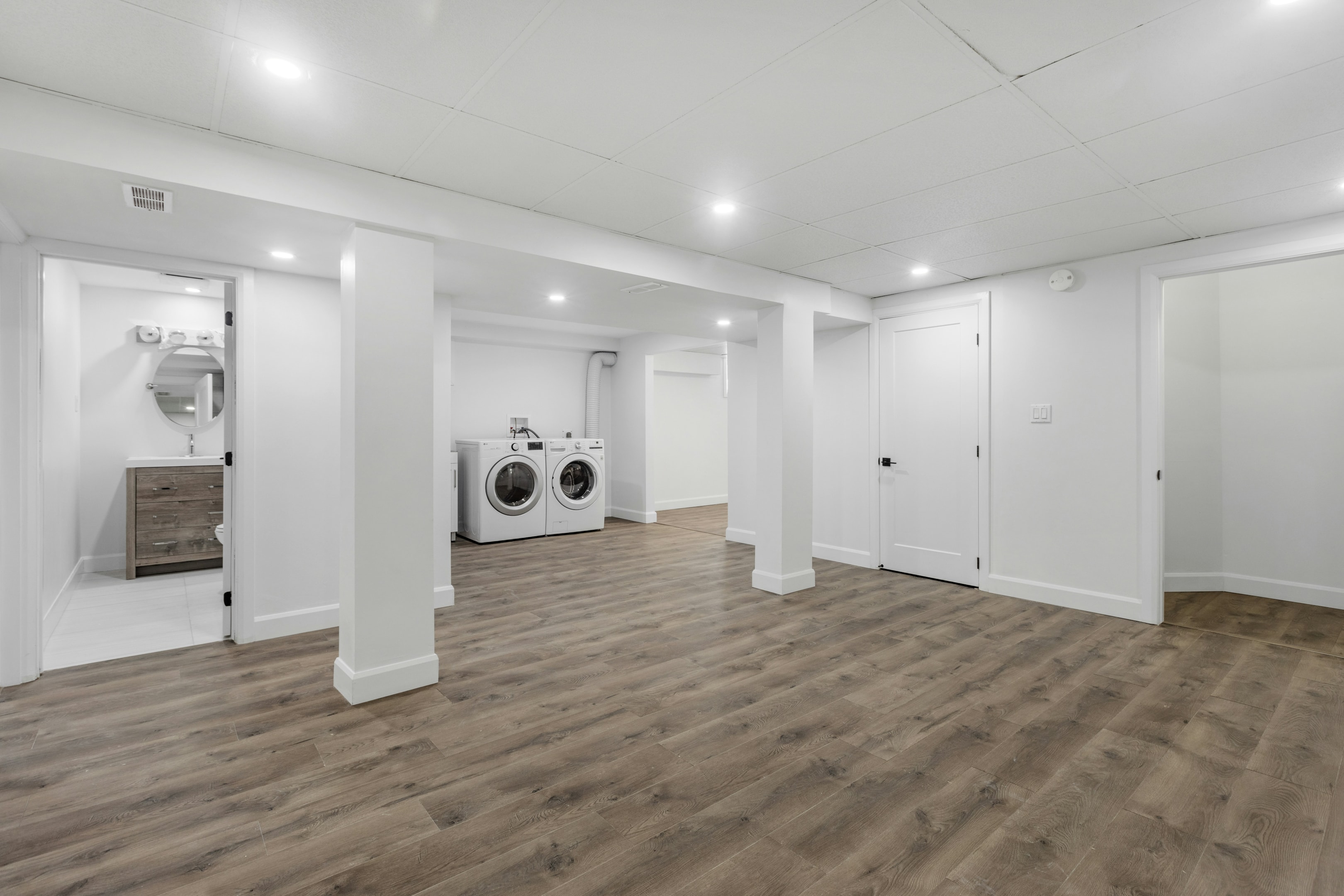
Understanding Basement Finishing Costs
Basement renovation, a lower-scale cosmetic update focusing on aesthetic improvements rather than structural changes, can transform an unused or underutilized space into a valuable functional living space. However, it’s essential to understand the basement finishing costs involved in completing a basement remodeling project. This comprehensive guide will delve into the various factors affecting basement finishing costs, including labor, materials, and permits, and will provide practical tips for both DIY enthusiasts and those considering professional assistance.
What Is the Average Cost to Finish a Basement?
On average, the cost to finish a basement ranges from $25 to $50 per square foot. For a complete basement finish, including walls, ceilings, and floors, you can expect to spend around $30,000. This estimate covers standard materials and finishes; however, high-end options such as top-of-the-line lighting fixtures and flooring can increase the total project cost.
Major Cost Factors of Basement Finishing
Several factors influence the overall cost of a basement finishing project:
- Size of the Basement: Larger basements require more materials and labor, leading to higher costs.
- Type of Materials: The choice of materials significantly impacts the cost. For example, high-quality flooring or custom lighting fixtures will increase expenses.
- Labor Costs: Hiring a professional contractor typically accounts for about 40% of the total project cost, with an additional 10% to 20% for contractor fees. DIY basement finishing can reduce labor costs but may require more time and expertise.
Preparing Your Basement for Finishing
Clean Out Your Basement
Before starting any remodeling project, it’s crucial to clear out the basement. Remove all junk, including boxes, bins, trash, and appliances. Renting a dumpster can help manage the debris effectively.
Complete a Moisture Test
Performing a moisture test is essential to determine if your basement needs waterproofing. Identify the source of any moisture and address it before beginning the renovation. Applying a waterproofing membrane to exterior cement walls can prevent future issues. Installing a sump pump is also crucial to prevent water intrusion, especially in areas with high water tables and heavy rainfall.
Research Local Building Permits and Building Codes
Understanding local building codes is vital to ensure your basement meets legal requirements. Check regulations regarding ceiling height, exits, and other aspects. Apply for the necessary building permits once you confirm compliance.
Basement Finishing Process

How to Finish Basement Walls
To finish a basement wall, follow these steps, emphasizing proper framing techniques, insulation, and material selection:
- Insulation: Install polystyrene foam insulation or fiberglass batts between the floor joists to improve energy efficiency and comfort.
- Drywall: Secure drywall to the top and bottom plates of the wall studs using drywall screws. Apply drywall tape and mud to cover seams, then sand and paint.
- Painting: Choose a color that complements the new living space.
Consider using drop ceilings to conceal exposed pipes and wiring while allowing easy access.
How to Finish the Basement Floor
Selecting the right flooring is crucial for durability and functionality:
- Waterproof Materials: Use waterproof options to protect against leaks and floods.
- Concrete Floor Options: Concrete floors can be finished with epoxy coatings, staining, or sealing to enhance their appearance and durability.
- Subflooring: Install a subfloor to improve insulation and comfort.
How to Finish Your Basement Ceiling
Finishing the basement ceiling involves:
- Concealing Utilities: Use a drop ceiling to hide overhead pipes, wires, and ductwork while providing access for future maintenance. Stretch ceilings can also be used for this purpose.
- Choosing Materials: Select materials that suit your budget and aesthetic preferences. Drop ceilings are often cost-effective and versatile.
Labor and Material Costs
Labor Costs for Basement Finishing
Labor typically represents about 40% of the total project cost. Hiring a professional can add another 10% to 20% to the overall expense. If you choose DIY basement finishing, you can save on labor costs, but be prepared for a more time-consuming process.
Material Costs for Basement Finishing
Material costs vary based on quality and type:
- Drywall Costs: For a 1,000-square-foot basement, drywalling costs around $2 per square foot, with additional materials raising the cost to $2.75 to $3.00 per square foot.
- Flooring Costs: Costs depend on the type of flooring chosen, from inexpensive carpet to high-end hardwood.
Additional Costs to Consider
- Permits and Inspections: Building permits are essential and can cost between $220 to $300. These permits cover structural changes, electrical work, and HVAC system modifications.
- Plumbing Installation: Costs vary depending on the complexity of installing plumbing for a basement bathroom.
- Basement Waterproofing: Essential for preventing moisture issues, with an average cost of about $5,000. Consider using waterproofing membranes for added protection.
DIY vs. Professional Basement Finishing
Professional Basement Finishing
Opting for professional basement finishing ensures that the job meets high standards and is completed efficiently. Professionals can handle complex tasks such as plumbing and electrical work, which are best left to experts.
DIY Basement Finishing
How to finish a basement can save money, especially on labor costs, by providing detailed guidance on various aspects of finishing a basement, including walls, ceilings, and flooring. Projects like installing countertops and flooring are manageable for DIY enthusiasts. However, for more complex tasks, such as electrical work and plumbing, hiring professionals is advisable to ensure safety and compliance with building codes.
Benefits and Value of Finishing a Basement
Does a Finished Basement Add Value to Your Home?
Although a finished basement is not included in the official square footage of your home, it can still increase your property’s value. Studies show that finishing a basement can offer a return on investment of around 70%. It enhances the livability and appeal of your home, making it more attractive to potential buyers.
What are the Benefits of a Finished Basement?
A finished basement provides several advantages. An unfinished basement typically requires more extensive work for remodeling due to its raw state, characterized by exposed pipes and minimal amenities, while a partially finished basement may have some basic features already in place, making it less costly to complete.
- Additional Space: It offers extra living space without the cost of a home addition. Use it for an entertainment room, home gym, or extra bedroom.
- Energy Efficiency: Improved insulation can reduce utility bills.
- Increased Functionality: Transform the space into a laundry room, office, or playroom.
Hiring a Professional to Finish Your Basement
How to Hire a Professional
Research and get written estimates from contractors. Ensure they are experienced in basement finishing, licensed, and insured. Consider hiring specialists who focus on basement projects for the best results.
Saving Money on Basement Finishing

Cost-Effective Ways to Finish a Basement
- Affordable Materials: Opt for budget-friendly materials to lower costs.
- DIY Projects: Handle simpler tasks yourself to save on labor.
- Plan Ahead: Thorough planning and adherence to local building codes can prevent costly mistakes.
Basement Finishing FAQs
What is Included in a Finished Basement? A finished basement typically includes subfloor and flooring, electrical systems, plumbing, heating/air conditioning, and finished walls and ceilings. For bedrooms, an egress window is required.
Can You Finish a Seven-Foot-High Basement? Yes, you can finish a seven-foot-high basement by making adjustments such as using recessed lighting fixtures to maximize space.
Does a Finished Basement Have to Have an Egress Window? In basements larger than 200 square feet with habitable space, an egress window is required by the International Residential Code (IRC) and local building codes.
Basement Ceiling Insulation Costs Insulating your basement ceiling is important for energy efficiency. Costs can vary depending on the insulation type, such as spray foam or fiberglass batts.
Basement Customizations and Furnishing Costs
How to Furnish and Customize Your Finished Basement Transform your finished basement into a functional space that suits your needs, whether as an entertainment area, home gym, or extra bedroom. The increased living space can enhance your comfort and enjoyment of your home.
By understanding the various costs and factors involved in finishing a basement, you can make informed decisions and create a space that adds value and functionality to your home. Whether opting for DIY or professional services, careful planning and execution will ensure a successful basement remodeling project.



